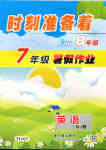
Why do we need friends? Well, having friends may well keep you healthier and help you deal with stress better. Some studies show that people with close friends have a greater ability to fight disease than people who are lonely. But never take a friendship for granted. Like a good marriage, friendship needs care and patience(耐心).Here is something to remember to maintain(维持)a friendship:
Make friendship the most important thing. Find the time to be with your friends even if it means letting the grass go unmoved or the dishes unwashed for a while. When you can’t get together, use the phone to keep in touch.
Open up to close friends. Don’t be afraid to express your inner fears and disappointments. Listen to your friends when they have problems, but offer advice only when it’s wanted.
Have different friends for different activities, such as going to the movies, singing in a choir, or taking part in a bowling league.
Don’t wait for a friend to ask a favor. When a friend has the flu, offer to go to the store to buy some pills or drive his / her children to their after-school activities.
How to make new friends?
You can start a group, such as a discussion group on gardening or books. Place an ad in a community newspaper to find people.
Talk to strangers to find new friends. You should be cautious(谨慎的)and use your common sense, of course. Conversations started in museums, laundry rooms, or bookstores can lead to firm friendships.
Enroll in an adult-education course. A classroom is a good place to meet others with similar interests.
48. Which of the following is NOT mentioned in the passage?
A. How to make new friends. B. Why do we need friends.
C. How to keep a friendship. D. How to gain friends’ trust.
49. We can learn from the passage that .
A. We should not give advice to our friends anytime we want to
B. We should offer to help our friends even if they don’t need help at all
C. It’s impolite to have different activities with different groups of friends
D. People with friends can live longer than those who don’t have friends
50. According to the author, _______ are good places to find people sharing your interests.
A. libraries B. markets
C. laundry rooms D. classrooms
 时刻准备着暑假作业原子能出版社系列答案
时刻准备着暑假作业原子能出版社系列答案 暑假衔接教材期末暑假预习武汉出版社系列答案
暑假衔接教材期末暑假预习武汉出版社系列答案 假期作业暑假成长乐园新疆青少年出版社系列答案
假期作业暑假成长乐园新疆青少年出版社系列答案科目:高中英语 来源: 题型:阅读理解
Now satellites are helping to forecast(预报)the weather. They are in space, and they can reach any part of the world. The satellites take pictures of the atmosphere(大气), because this is where the weather forms(形成). They send these pictures to the weather stations. So meteorologists(气象学家)can see the weather of any part of the world. From the pictures, the scientists can often say how the weather will change.
Today, nearly five hundred weather stations in sixty countries receive satellite pictures. When they receive new pictures, the meteorologists compare(比较)them with earlier ones. Perhaps they may find that the clouds have changed during the last few hours. This may mean that the weather on the ground may soon change, too. In their next weather forecast, the meteorologists can say this.
So the weather satellites are a great help to the meteorologists. Before satellites were invented, the scientists could forecast the weather for about 24 or 48 hours. Now they can make good forecasts for three or five days. Soon, perhaps, they may be able to forecast the weather for a week or more ahead(提前).
Satellites travel _____________.
A. in space B. in the atmosphere
C. above the ground D. above space
Why do we use the weather satellites to take pictures of the atmosphere? Because __________.
A. the weather satellites can do it easily
B. clouds form there
C. the weather forms there
D. the pictures can forecast the weather
Meteorologists forecast the weather __________.
A. when they have received satellite pictures
B. after they have compared new satellite pictures with earlier ones
C. before they received satellite pictures
D. during they study satellite pictures
The main(主要的)idea of this passage is that satellites are now used in _________.
A. taking pictures of the atmosphere
B. receiving pictures of the atmosphere
C. doing other work in many ways
D. weather forecasting
查看答案和解析>>
科目:高中英语 来源:2010年甘肃省嘉峪关市一中高一上学期期末考试英语卷 题型:阅读理解
Now sat ellites are helping to forecast(预报)the weather. They are in space, and they can reach any part of the world. The satellites take pictures of the atmosphere(大气), because this is where the weather forms(形成). They send these pictures to the weather stations. So meteorologists(气象学家)can see the weather of any part of the world. From the pictures, the scientists can often say how the weather will change.
ellites are helping to forecast(预报)the weather. They are in space, and they can reach any part of the world. The satellites take pictures of the atmosphere(大气), because this is where the weather forms(形成). They send these pictures to the weather stations. So meteorologists(气象学家)can see the weather of any part of the world. From the pictures, the scientists can often say how the weather will change.
Today, nearly five hundred weather stations in sixty countries receive satellite pictures. When they receive new pictures, the meteorologists compare(比较)them with earlier ones. Perhaps they may find that the clouds have changed during the last few hours. This may mean that the weather on the ground may soon change, too. In their next weather forecast, the meteorologists can say this.
So the weather satellites are a great help to the meteorologists. Before satellites were invented, the scientists could forecast the weather for about 24 or 48 hours. Now they can make good forecasts for three or five days. Soon, perhaps, they may be able to forecast the weather for a week or more ahead(提前).
【小题1】Satellites travel _____________.
| A.in space | B.in the atmosphere |
| C.above the ground | D.above space |
| A.the weather satellites can do it easily |
| B.clouds form there |
| C.the weather forms there |
| D.the pictures can forecast the weather |
| A.when they have received satellite pictures |
| B.after they have compared new satellite pictures with earlier ones |
| C.before they received satellite pictures |
| D.during they study satellite pictures |
| A.taking pictures of the atmosphere |
| B.receiving pictures of the atmosphere |
| C.doing other work in many ways |
| D.weather forecasting |
查看答案和解析>>
科目:高中英语 来源:云南省昆明黄冈高考复读中心2010届高考压轴模拟考试卷 题型:阅读理解
B
When I was small and my grandmother died I couldn’t understand why I had no tears. But that night when my dad tried to cheer me up, my laugh turned into crying.
So it came as no surprise to learn that researchers believe crying and laughing come from the same part of the brain. Just as laughing has many health advantages, scientists are discovering that crying does so, too.
Whatever it takes for us to reduce pressure is important to our emotional (情感的) health, and crying seems to be helpful. Study found that 85 percent of women and 73 percent of men report feeling better after crying.
Besides, tears attract help from other people. Researchers agree that when we cry, people around us become kinder and more friendly and they are more ready to provide support and comfort. Tears also enable us to understand our emotions better; sometimes we don’t even know we’re very sad until we cry. We learn about our emotions through crying, and then we can deal with them.
Just as crying can be healthy, not crying — holding back tears of anger, pain or suffering — can be bad for physical health. Studies have shown that too much control of emotions can lead to high blood pressure, heart problems and some other illnesses. If you have a health problem, doctors will certainly not ask you to cry. But when you feel like crying, don’t fight it. It’s a natural — and healthy — emotional response (反应).
59. Why didn’t the author cry when her grandmother died?
A. Because her father did not want her to feel too sad.
B. Because she did not love her grandmother.
C. Because she was too shy to cry at that time.
D. The author doesn’t give the explanation.
60. It can be inferred from the text that ______.
A. there are two ways to keep healthy
B. crying does more good to health than laughing
C. crying and laughing play the same roles
D. emotional health has a close relationship to physical health
61. According to the author, which of the following statements is TRUE?
A. Crying is the best way to get help from others.
B. Fighting back tears may cause some health problems.
C. We will never know our deep feelings unless we cry.
D. We must cry if we want to reduce pressure.
62. What might be the most suitable title for the text?
A. Power of Tears B. How to Keep Healthy
C. Why Do We Cry D. A New Scientific Discovery
查看答案和解析>>
科目:高中英语 来源:2013届浙江省杭州四中高三第九次教学质检英语试卷(带解析) 题型:阅读理解
On August 5 at 10:31 p.m. PST, a rover(探测器)named Curiosity touched down safely on the surface of Mars, and I was lucky enough to have a front-row seat.
My name is Clara, and when I was in Grade 6, I won the essay contest NASA held to name its next Mars rover. The essay I wrote was not even 250 words long, but somehow it was enough to change my life.
I still remember that cold December day, sitting in a science class. I’d finished a worksheet early and decided to get a Time for Kids magazine off Mrs. Estevez’s bookshelf. It was the 2008 Invention Issue, but that wasn’t the only thing that caught my eye. In the magazine, there was an article about a girl who named the Mars Exploration Rovers, Spirit and Opportunity. The article also talked about the essay contest NASA was holding to name its next Mars rover. Before I even knew anything else about it, a single word flooded my 11-year-old mind: Curiosity.
I couldn’t wait for the bell to ring so I could get started on my essay. That afternoon, I raced home from the bus stop, sat down at the computer and typed until my fingers ached. It turned out that I was just in time. A few days later, and the contest would have closed.
Five months later, shortly after I had turned 12, I was watching a National Geographic special on mammoths when the phone rang. My mom answered, and immediately, a wide smile spread across her face. When she told me that I had won, I was happier than I could ever remember being, I screamed and ran up and down the stairs and all around the house. I completely forgot about the mammoths and did not even remember to turn off the TV until it was really late.
Curiosity is such an important part of who I am. I have always been fascinated by the stars, the planets, the sky and the universe. I remember as a little girl, my grandfather and I would sit together in the backyard for hours. He’d tell me stories and point out the stars.
My grandfather lived in China, thousands of miles away from my home in Kansas. I loved the stars because they kept us together even when we were apart. They were always there, yet there was so much I didn’t know about them. That’s what I love so much about space. No matter how much we learn, it will always possess some mystery.
In the past, space exploration may have been a competition to see who got somewhere first or the fastest. But now, it is one of the few things that bring people together. Science is a language that needs no translation. It doesn’t matter where you’re from or what you look like – you just have to have a thirst for knowledge and a passion for learning in order to succeed.
People often ask me why we go to faraway places like Mars. Why do we explore? My answer to that is simple: because we can; because we’re curious; because we as human beings do not just stay holed up in one place. We are constantly wondering and trying to find out what’s over the hill and beyond the horizon.
The curiosity rover is more than just a robot. It is more than just a titanium body and aluminum wheels. Curiosity represents the hard work, passion, love and commitment of thousands of people from all over the world who were brought together by science. Science is so awesome. It is breathtaking and mind-blowing; and sometimes, it’s just a little bit crazy. The discoveries we make about our world are incredibly humbling. They move us forward and have the potential to benefit all of mankind.
This December it will be four years of my life that have been tied to Curiosity in some way. I’ve met so many amazing people through this experience, from scientists to engineers to administrators to volunteers. Their devotion and enthusiasm inspire me greatly. My journey with Curiosity and the MSL mission team has shaped the person that I am today, as well as the person I would one day like to become.
I am deeply grateful to everyone who made it possible for me to have this amazing adventure.
And to you, I hope your curiosity takes you far.
【小题1】 The method the writer uses to begin the passage is _____.
| A.telling a story | B.giving an example |
| C.offering an explanation | D.describing a scene |
| A.She had just gathered enough information from Time for Kids |
| B.She wanted to write down what flashed through her mind in time. |
| C.She knew from Mrs. Estevez the deadline for the contest was approaching. |
| D.She was afraid she might miss the chance to compete with the former winner. |
| A.she missed him very much. |
| B.he knew a great deal about space |
| C.he influenced her to love the stars |
| D.she treasured their happy moments |
| A.The writer was inspired to be a volunteer by the people she met. |
| B.The writer owed her success to her team members’ encouragement. |
| C.The writer met many difficulties in her four-year life with Curiosity. |
| D.The writer has benefited a lot from her experience tied to Curiosity. |
| A.Sharp. | B.Proud. | C.Aggressive. | D.Enthusiastic. |
| A.Curiosity is important to human beings. |
| B.A thirst for knowledge helps one grow up. |
| C.Entering a contest is a way to achieve success. |
| D.Curiosity changes people’s attitude towards science. |
查看答案和解析>>
科目:高中英语 来源:2010年吉林省高一下学期期末考试试题 题型:阅读理解
We can make mistakes at any age. Some mistakes we make are about money. but most mistakes are about people. "Did Jerry really care when I broke up with Helen?" "When I got that great job, did Jim, as a friend, really feel good about it? Or did he envy my luck?" "And was Paul friendly just because I had a car? " When we look back, doubts like these can make us feel bad.
But when we look back, it is too late.
Why do we go wrong about our friends, or our enemies? Sometimes what people say hides their real meanings. And if we do not really listen, we miss the feeling behind the words. Suppose someone tells you, "You're a lucky dog!"(你真幸运!) Is he really on your side? If he says, "You're a lucky guy!", that is being friendly. But "a lucky dog?" There is a bit of envy in those words. What he may be saying is that he does not think you deserve your luck.
"Just think of all the things you have to be thankful for" is another phrase that says one thing and means another. It could mean that the speaker is trying to get you to see your problem. But this phrase contains the thought that your problem is not at all important.
How can you tell the real meaning behind someone's words? One way is to take a good look at the person talking. Do his words fit the way he looks? Is what he says shown by the tone of voice? The look in his eyes? Stop and think. The minute you spend thinking about the real meaning of what people say to you may save your another mistake.
57.When the writer recalls(回想) some of the things that happened between him and his friends, he _______.
A. feels happy, thinking how nice his friends were to him
B. feels he might not have understood his friends' true feelings
C. think it a mistake to have broken up with his girl friend
D. is sorry that his friends let him down
58.When the writer talks about someone saying, "You're a lucky dog!", he is saying that
_____.
A. the speaker is just friendly
B. this sentence suggests the same as "You're a lucky guy!"
C. the word "dog" should not be used to apply to people
D. sometimes the words show that the speaker is a bit envious
59.This passage tries to tell you how to ______.
A. avoid mistakes about money and friends
B. get an idea of friendly people
C. avoid mistakes in understanding what people tell you
D. keep people friendly without trusting them
60.The writer suggests that ______ be trusted.
A. everybody B. nobody C. all the people D. all the people not
查看答案和解析>>
湖北省互联网违法和不良信息举报平台 | 网上有害信息举报专区 | 电信诈骗举报专区 | 涉历史虚无主义有害信息举报专区 | 涉企侵权举报专区
违法和不良信息举报电话:027-86699610 举报邮箱:58377363@163.com